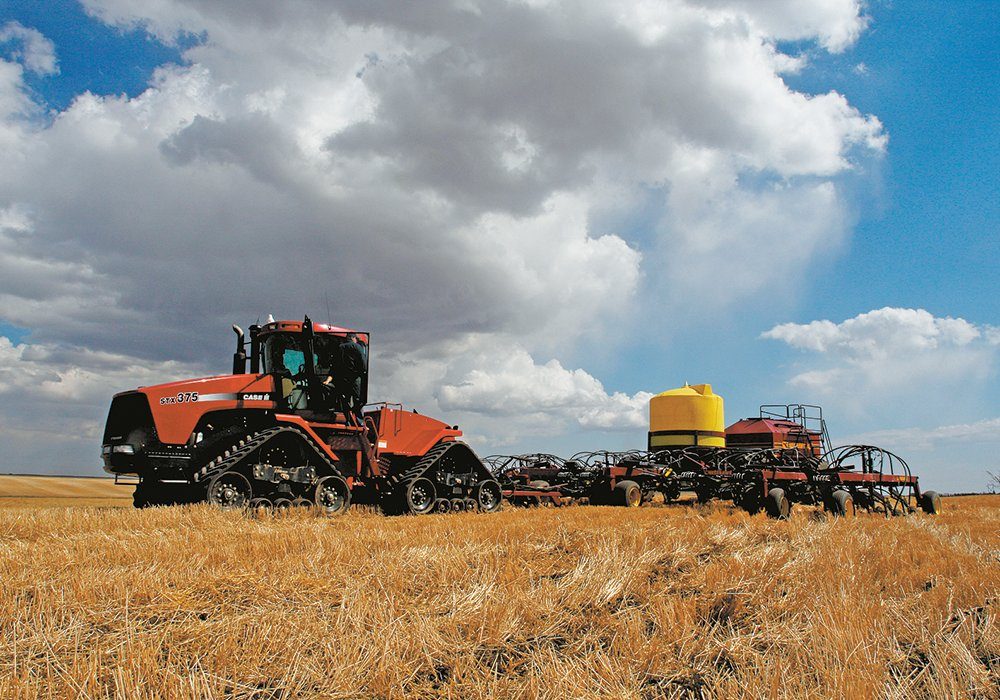Ag stakeholders weigh in on proposed climate law

Agricultural stakeholders continue to argue Canada’s proposed accountability law to achieve climate goals should be amended to include more industry representation.
A parliamentary committee studying Bill C-12, the law that would set national targets for the reduction of greenhouse gasses, has been hearing testimony from witnesses throughout May and June.
An advisory panel was named in February and tasked with providing government advice on the path to net-zero emissions by 2050, but nobody on it has intimate knowledge of agriculture or farming.
Industry representatives testifying before the committee say that needs to change.
“To ensure that Canada’s path to net zero is market driven, Pulse Canada is advocating for seats on advisory bodies to be allocated to Canadian agriculture — both farmers and representatives from the broader agriculture value chain,” said Corey Loessin, a farmer and chair of Pulse Canada, during his testimony.
Greg Northey, vice-president of corporate affairs for Pulse Canada, told members, “We need to understand how the targets we’re setting are going to be reached by the agriculture sector and pulse growers, and the kinds of innovations that need to go into that, and what impact it’s going to have on growers in Canada.”
Much of Pulse Canada’s remaining testimony attempted to draw a direct line between the needs of the economy and the environment.
“Pulse Canada fully endorses policy that creates market-driven conditions for growers, processors and exporters to monetize commitments being made to global environmental sustainability,” he said. “Pulses and pulse ingredients are some of the most sustainable foods around, due to their capacity to fix nitrogen, their water-use efficiency and their contribution to soil health.”
He also called for regional adaptation of climate policies.
Fertilizer Canada wrote in a submission to the committee Bill C-12 should be amended to include a section “on the domestic and global competitiveness of Canadian industries, for example amongst G20 countries, and how it has been impacted by the government’s climate policies.”
In a similar vein, the industry association also called for “sectoral industry benchmarking” against other countries to provide metrics and “ensure the economy and environment go hand-in-hand.”
The Canadian Cattlemen’s Association joined calls for more representation on the advisory board, emphasizing the role the industry already plays in the fight against climate change.
Dr. Reynold Bergen, science director for the Beef Cattle Research Council appearing on behalf of the Canadian Cattlemen’s Association, noted the industry’s per-kilogram greenhouse gas footprint dropped by 15 percent between 1981 and 2011.
“Reducing consumption of Canadian beef would be detrimental to Canada’s net-zero emissions goals,” he said, arguing the 2.4 percent of Canada’s total emissions coming from beef are “only one side of the carbon ledger.”
Soil carbon stored in the grasslands represent the other side of the ledger, said Bergen.
He said 1.5 billion tonnes of carbon being stored in soil stewarded by ranchers could be at risk.
“Reducing beef production and consumption would mean that privately owned grasslands would be converted to other agricultural uses. Cultivating Canada’s remaining grasslands would release much more soil carbon into the atmosphere than we would ever save from reduced cattle emissions,” he said.
More broadly, most critics of the legislation focus on its lack of teeth in achieving emissions reductions.
Representatives from EcoJustice Canada say the law doesn’t set a proper plan to fight climate change. They say Bill C-12 doesn’t specify details of what a plan to reduce emissions must contain, and offers too much levity in short- and mid-term target setting.
Other critics noted the law has no consequences for failing to reduce emissions targets.
The committee will continue to hear testimony from witnesses in June.
Source: producer.com

